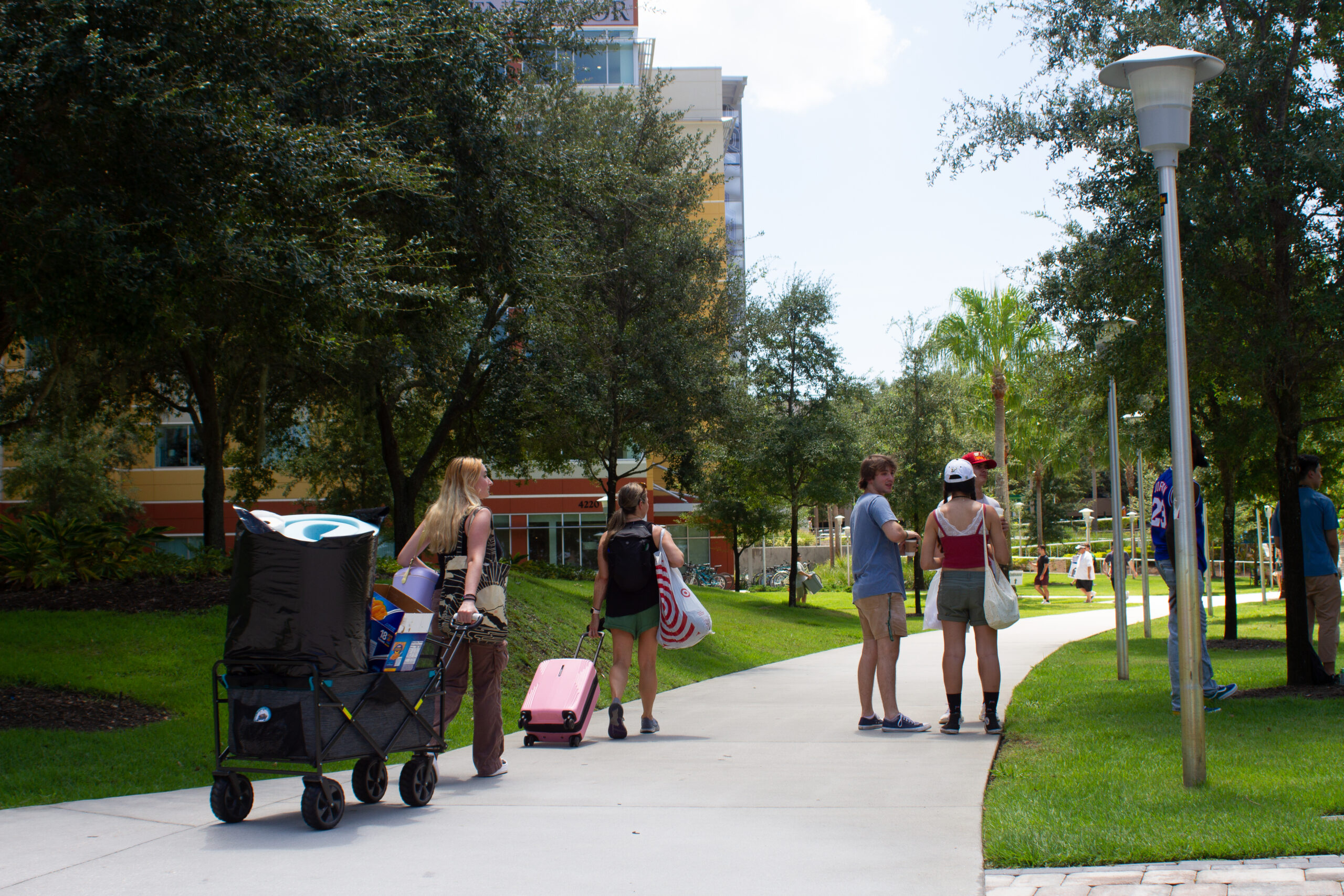USF houses more students than ever as pandemic restrictions fade

USF continues its climb back to normalcy from the pandemic as it welcomes a record number of 7,400 students to live on campus, with 6,500 residing in Tampa and 900 in St. Pete, according to a university press release.
Amid the spring 2020 semester, all students living on campus were dismissed after spring break due to the spread of the virus while instruction was indefinitely moved online. For two years, the demand for housing on campus was low as classes were primarily online, according to Assistant Vice President of Housing and Residential Education Ana Hernandez.
However, Hernandez said this academic year has offered new challenges for keeping up with the demand for housing. In fact, the university had to transition Tampa’s Pinnacle Hall in The Village, which has had single dorms since its opening in 2018, to double-bed dorms to keep up.
“USF has experienced a significant increase in the number of applications to come to USF more than they have had in the past, and so there’s a high demand to be a Bull. Along with that comes high demand to have the full bull experience, which includes living on campus,” she said.
Hernandez also attributed the opening of the 375-bed Osprey Suites on the St. Pete campus in 2020 to the heightened numbers.
To match the higher density of students in each residence hall, Hernandez said that 193 RAs and community managers have been staffed across the 33 resident halls and the Greek Village.
Despite frequent hot water and power outages across the campus and residence halls last year, Hernandez said the Housing and Residential Team works closely with the USF Physical Plant to prevent and solve any complications that may occur.
Altogether, the university does not require students to receive any vaccines or boosters, and does not enforce mask-wearing, according to Hernandez.
Even without mandatory mitigation efforts, Chief Health Officer Donna Petersen said students on campus are in a better position now than they were two years ago to avoid contraction of the virus because of their immunity built up from past bouts with it and vaccinations.
“Though the virus is still circulating, it is a very different strain from those we were dealing with early on,” Petersen said.
“Yes, it is highly transmissible, but it is much less severe in terms of the illness it causes, and we believe the population has acquired a lot of immunity through infections or vaccinations, which doesn’t always prevent transmission, but further diminishes the severity of any illness.”
For students that are living in double-bed dorms, only those who test positive or display symptoms will be expected to isolate, according to Petersen, and those who are just exposed do not have to.
“Anyone with symptoms or who tests positive should seek medical advice right away and follow any directions to isolate,” she said. “Any residential student needing to isolate will need to go home. If that is absolutely impossible, we will find an alternative that protects the larger community from the risk of infection.”
Petersen encourages all students to receive the vaccine and boosters offered by Student Health Services, but is still an advocate for mask-wearing and especially developing good hand washing habits.
Even with monkeypox cases increasing around the country, Petersen is optimistic that the university will continue to enjoy instruction and learning communities reminiscent of a pre-pandemic USF.
“Right now, we do not anticipate shutting down, or shifting to a virtual state,” she said. “Anything is possible of course, should circumstances change, but this is not a tool we will likely use again.”







